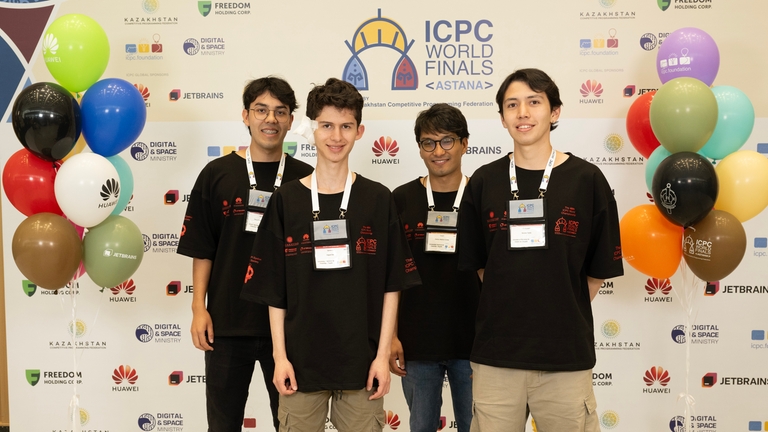Hello everyone. Later, I wrote a text about the situation regarding competitive programming in Colombia. I guess this is a situation that many countries may face so I would like to publish it here.

In recent years, competitive programming (CP) has gained prominence as a key criterion for companies looking to hire skilled professionals. William Lin defines CP as “a mind sport where participants need to write programs to solve well-defined problems.” Notably, some have represented Colombia on international stages such as Japan, Indonesia, and Egypt while they were in the school.
But one critical question arises: How does Colombia fare in this global sport? The answer is disheartening. While the country has produced exceptional competitors, the community remains small and concentrated in cities like Bogotá and Medellín. A few talented individuals hail from other regions like the Amazon, Pereira, and Cali. Unfortunately, the lack of encouragement for competitive programming in Colombia has significantly hindered students’ interest in this field, despite its numerous advantages. Searching for news about “competitive programming” and “Colombia” yields little to no relevant results. This lack of visibility starkly contrasts with countries like Argentina, where the media actively covers CP events (not as we would like, for sure). For instance, El1digital reported in 2024: “The UNLaM was host of the Latin America Regional competition of ICPC.” Similarly, Tiempo Argentino highlighted: “In the middle of the attack on universities, a team from the UBA was Latin America Champion in the World Programming Competition.” In Europe and Asia, such news is even more common, reflecting better support for participants and greater recognition of the sport.
Despite the efforts of university groups in Colombia, the local CP community is shrinking. Take my own experience as an example: I spent three years at university before even knowing about this sport. Did I ever see it mentioned on social media or in journals? No. Did any professors or peers tell me about it? Again, no. Ironically, I attend Universidad Nacional de Colombia, which has produced most of the country’s international CP representatives since 2006. This university is renowned for its top-tier competitive programmers, yet CP is not formally recognized as a seminar or sports group.
This lack of institutional support jeopardizes the continuity of a tradition that has put Colombia on the international stage. This issue is not limited to my personal experience. Last year, I traveled to Brazil to represent my university in the Female Marathon of Programming. Out of hundreds of participants, only three women represented Colombia in the final phase. However, a Colombian competitor emerged victorious (it was not me, sadly), underscoring our untapped potential. Meanwhile, our ICPC team, Buhos ICPC UN, has competed in countries such as the U.S., Norway, Russia, Egypt, and Kazakhstan. Yet, the absence of media support makes it challenging to secure funding for travel and accommodations. We have often relied on crowdfunding platforms like Vakis to make these trips possible. This financial struggle is not unique to our university but reflects a nationwide problem that demands urgent attention. This contrast can be attributed to the robust support these communities receive from organizations, universities, and the media. They are also spaces for learning and collaboration, enabling users to discuss strategies, share solutions, and grow as programmers.
The benefits of excelling in CP extend far beyond the competitions themselves. Many leading companies, including Google, Microsoft, Huawei and Amazon, actively seek candidates with CP experience. These companies often value the problem-solving skills, logical thinking, and perseverance that it fosters. Moreover, CP equips students with the tools to excel academically. Joining these groups often translates to better performance in university courses, as the skills gained in programming challenges overlap with course content frequently. But CP is not just about academic or career benefits—it can also be incredibly fun. As CP YouTuber Errichto explains, “It is very fun, and I can focus on problems I like best.” The sense of achievement that comes from solving a particularly challenging problem is unmatched, and the camaraderie among teammates adds to the overall enjoyment. Team-based competitions, in particular, help participants develop soft skills such as teamwork, leadership, and effective communication. These skills are invaluable not only in the workplace but also in everyday life.
The broader impact of CP extends to national and international recognition. As the Irish Independent noted in an article about CP legend Gennady Korotkevich, “Still, sport coding has gone relatively unnoticed for too long. It’s a form of competition that rewards natural talent, perseverance, and teamwork.” For countries like Colombia, investing in CP could serve as a catalyst for technological and educational development. Imagine a scenario where Colombia is known not just for its rich culture and biodiversity but also as a hub for world-class programmers and innovators. Achieving this vision requires a collective effort. Universities need to formalize CP groups, offering them the same recognition and resources as traditional sports teams. The media should also play a role in highlighting the achievements of Colombian programmers on international stages. Additionally, government and private organizations can provide funding and sponsorships to ensure that financial barriers do not prevent talented individuals from competing abroad.
In conclusion, competitive programming offers numerous advantages for students, from enhancing academic performance to opening doors to prestigious career opportunities. Yet, Colombia’s lack of promotion and institutional support for CP prevents many talented individuals from realizing their potential. Programming is not merely the future—it is the present. By fostering CP, Colombia could not only nurture a new generation of problem solvers but also position itself as a competitive force on the global stage. It is time to give this sport the recognition and support it truly deserves.










